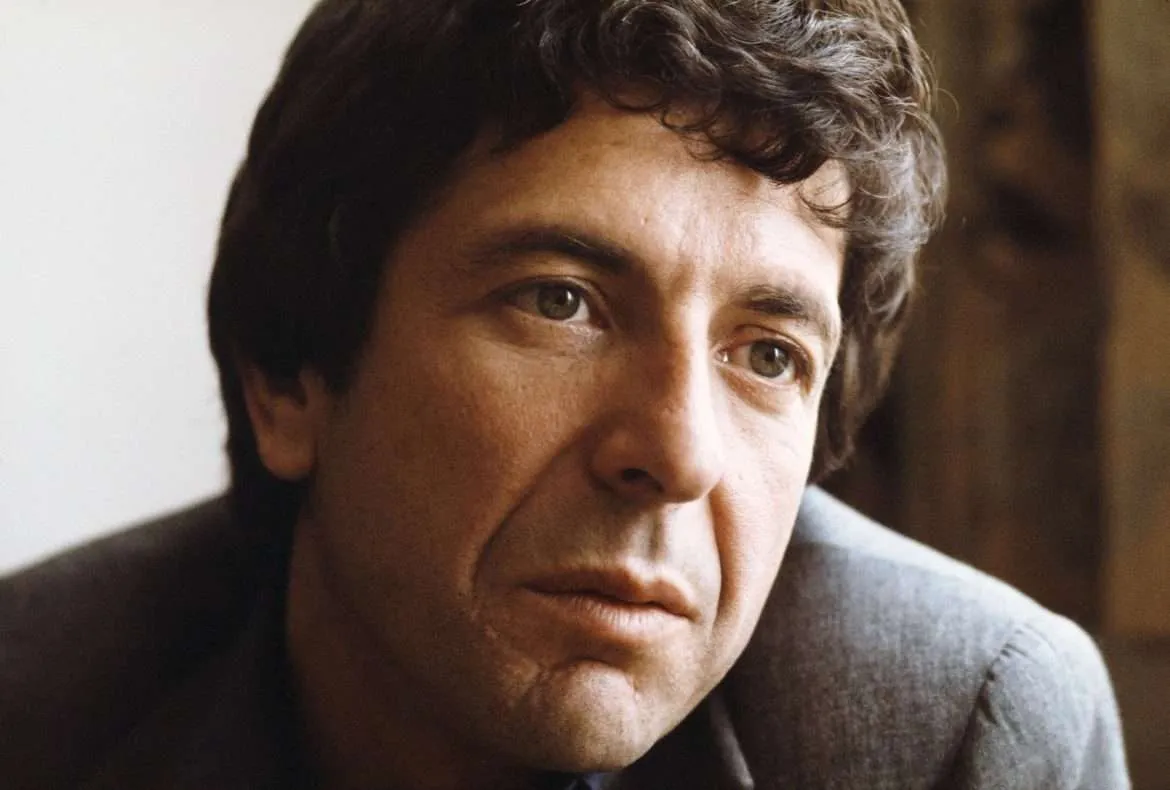Table of Contents
Leonard Cohen, whose spare songs carried an existential bite and established him as one of the most distinctive voices of 1970s pop music, was born September 21, 1934, in Montreal, Quebec, Canada, and died November 7, 2016, in Los Angeles, California, United States.Cohen was already well-known as a poet and novelist (his first collection of poems, Let Us Compare Mythologies, was published in 1956), but while living in New York City in the mid-1960s, he became interested in the Greenwich Village folk scene and began setting his poems to music.
Judy Collins recorded two of Cohen’s songs, “Suzanne” and “Dress Rehearsal Rag,” in 1967, and Cohen began performing in public the following year, including a performance at the Newport (Rhode Island) Folk Festival. He recorded The Songs of Leonard Cohen by the end of the year, which included the melancholy “Hey, That’s No Way to Say Goodbye.” Songs from a Room (1969), which included the now-famous “Bird on a Wire,” and Songs of Love and Hate (1971), which included “Famous Blue Raincoat,” a ballad written as a letter from a cuckold to his wife’s lover.
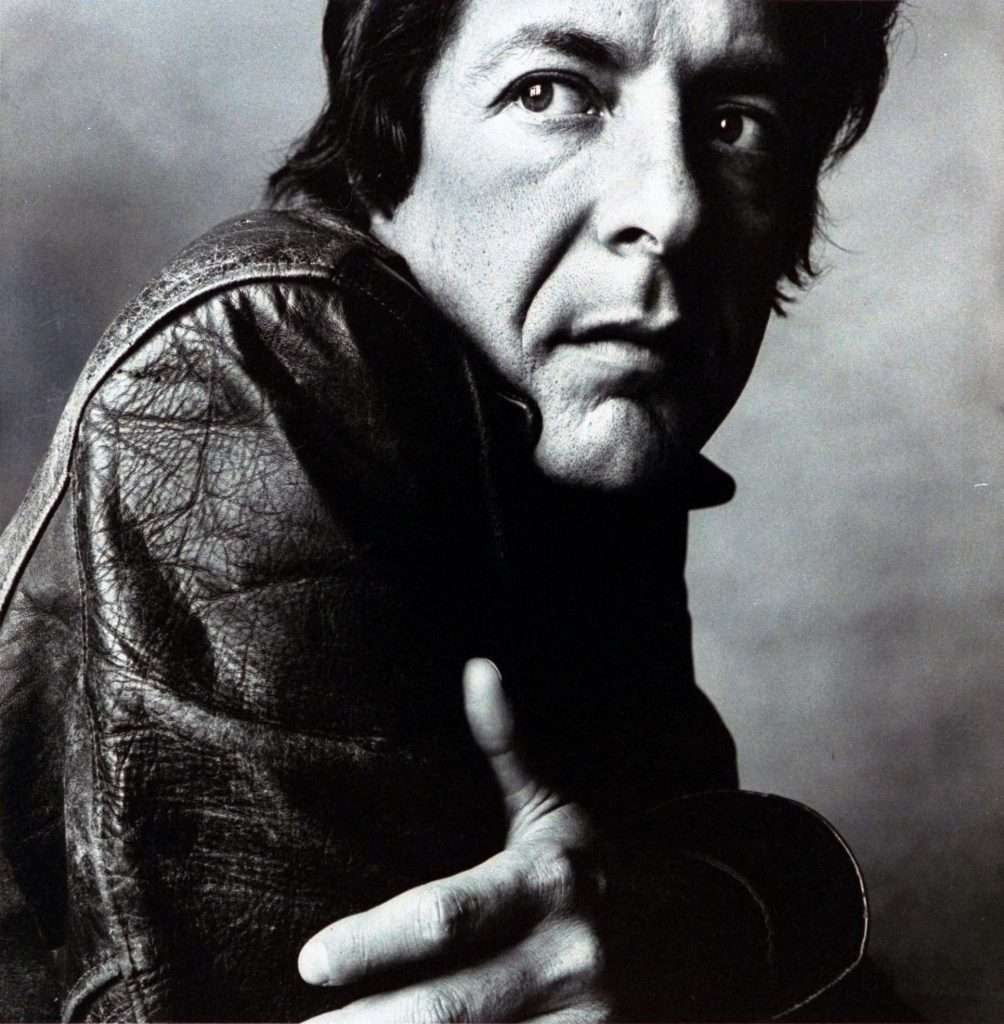
Despite some criticism of Cohen’s baritone voice and deadpan delivery, he was a critical and commercial success for the most part. Leonard Cohen: Live Songs (1973) and New Skin for the Old Ceremony (1974), both of which featured “Chelsea Hotel No. 2,” a candid account of a brief sexual encounter with Janis Joplin, cemented Cohen’s reputation as a songwriter of exceptional emotional power.
The disappointing Death of a Ladies’ Man (1977), a collaboration with legendary producer Phil Spector, whose grandiose style was ill-suited to Cohen’s understated songs, took a sharp turn for the worse. Cohen was out of favor for most of the 1980s, but his 1988 album, I’m Your Man, featured the club hits “First We Take Manhattan” and “Everybody Knows,” as well as introducing his songwriting to a new generation. In addition, Various Positions (1984) featured “Hallelujah,” Cohen’s most well-known song. The single gained widespread popularity after Jeff Buckley covered it in 1994, despite the fact that it did not receive much attention at the time. Hundreds of artists have since performed or recorded the ballad, and it has appeared on the soundtracks of TV shows and films.

Philippe Gras—Le Pictorium/Alamy
He moved to a Buddhist monastery outside of Los Angeles after releasing The Future (1992). In 1999, he resurfaced and returned to the studio, releasing Ten New Songs (2001) and Dear Heather (2001). (2004). Leonard Cohen: I’m Your Man (2005) was a critically acclaimed documentary that combined interview and archival footage with live performances of Cohen’s songs by a variety of musicians.
TRUTH OF LEONARD COHEN
In his 1992 song “Anthem,” Canadian singer-songwriter Leonard Cohen famously sang, “There is a crack in everything” (via Genius). “That’s how the light gets in,” says the narrator. This particular lyric encapsulates Cohen’s life and work in some ways. He was known for being moody — in fact, his moodiness helped him gain notoriety. To put it another way, the acute poignancy of Cohen’s writing is a big part of why his songs were and are so powerful.
Cohen once told Rolling Stone, “Depression has often been the general background of my daily life.” “Whatever I did, I believe, was in spite of it, not because of it. The depression wasn’t the driving force behind my work… That was only the sea in which I swam.”
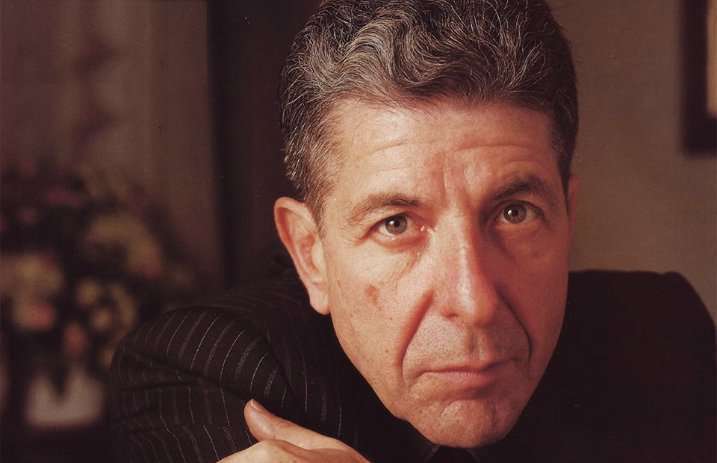
Cohen spent much of his life attempting to overcome his inner darkness through religion and spirituality, romance and sex, travel and reclusively, and poetry and lyricism. The singer-songwriter was ultimately a testament to the fact that age, internal struggles, or popular commercial interests can’t stop someone from following their dreams and letting the light in. More on the extraordinary life of one of the greatest songwriters of all time can be found here.
LEONARD COHEN’S RELATIONSHIP TO JUDAISM EVOLVED

Leonard Cohen was born in Montreal, Quebec, Canada, to Jewish parents. “I was told I was a descendant of Aaron, the high priest,” he told Richard Goldstein in 1967 (via Crawdaddy magazine), “and I had a very Messianic childhood.” According to the Jewish Chronicle, Cohen’s grandfather, Rabbi Klinitsky-Klein, wrote a Talmud thesaurus.
His other grandfather founded the Montreal Anglo-Jewish Times and the Sha’ar Hashamayim synagogue, among other important Jewish institutions in the city. Cohen even worked as a youth leader at the Jewish organization B’nai B’rith’s summer camps. He returned to Israel as an adult on several occasions, including during the 1973 Yom Kippur War, when he attempted to join the fight but was persuaded to do so by music.
Cohen became more interested in religion as he grew older. He once said, “I’m for anything that works, whether it’s Roman Catholicism, Buddhism, or LSD” (via The New Yorker). Later in life, he spent countless hours at the Ohr HaTorah synagogue on Venice Boulevard, where the rabbi, Mordecai Finley, read aloud from Cohen’s 1984 collection “Book of Mercy.”
Cohen later lived in a Buddhist monastery for several years — more on that later. He once said, “I even danced and sang with the Hare Krishnas” (via The New Yorker). “I didn’t join them, and I didn’t wear a robe, but I was trying everything.”
LEONARD COHEN BEGAN WITH A FOCUS ON POETRY

Leonard Cohen began his studies at McGill University in Montreal in 1951. According to Vice, he was mentored by his professors, Canadian poets Irving Layton and Louis Dudek. According to McGill News, Dudek oversaw the publication of his former student’s first poetry collection, “Let Us Compare Mythologies,” a year after Cohen graduated. Cohen won a literary prize from McGill for his poem “Sparrows,” which includes the line “But what shall I tell you of migrations/when in this empty sky/the precise ghosts of departed summer birds/still trace old signs?” (via Vice).
Cohen told Crawdaddy magazine in 1975, “There was… a very fine group of poets in [Montreal], where I got my training.” “We published our own books and magazines, we had no contracts or agreements with anyone else in the world, we considered ourselves self-sufficient, and the training was quite rigorous.”
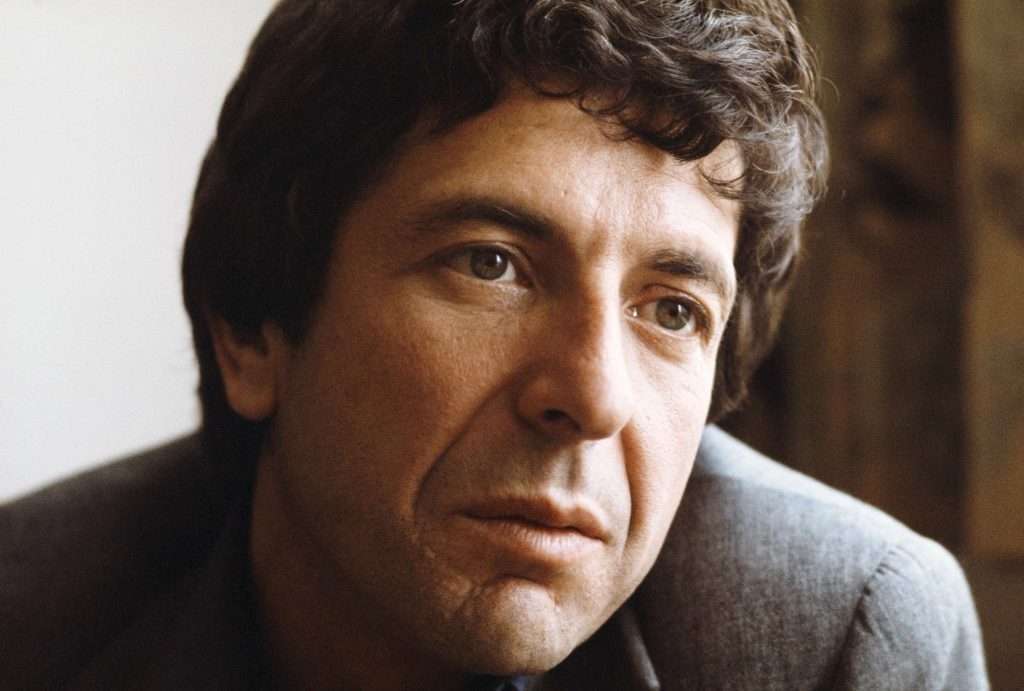
Cohen was nominated for the prestigious Canadian E.J. Pratt Medal for Poetry by the time his second book, “The Spice-Box of Earth,” was published in 1961, and one critic even called him “probably the best young poet in English Canada right now” (via Vice). “Beautiful Losers,” his first novel, was published five years later. It was a critical darling as well as a commercial flop. Cohen’s natural talent and love of poetry and literature paved the way for him to become one of the all-time great songwriters.
THE GREEK ISLAND OF HYDRA HAD A STRONG CONNECTION WITH LEONARD COHEN.

According to The Guardian, a 25-year-old Leonard Cohen was holed up in London in April 1960, trying to write three pages a day on a Canadian Arts Council grant. At a party one night, he met someone whose fiance owned a mansion on the Greek island of Hydra, where creative figures such as writer Henry Miller had stayed on occasion. Cohen was sold, and he moved from his drizzly London boarding house to the sunny island’s 40-room mansion. When he arrived, he was greeted with a rude awakening: a housekeeper refused to let him in because he was Jewish. The house burned down the following year, according to Cohen, who claimed he cursed it.
Despite this, Cohen purchased his own home on the island and remained there for several years. He shut himself off from the rest of the world on Hydra and focused solely on his writing, including his debut novel, “Beautiful Losers.” Cohen was disappointed one day when he looked out his window to see a telephone wire being installed outside, according to Suitcase magazine. He later said of that time, “Civilization had caught up with me” (via Suitcase). “After all, I wasn’t going to be able to get away. I wouldn’t be able to live this 11th-century life that I had imagined for myself.” Cohen’s song “Bird on a Wire” was inspired by this development and the island as a whole.
LEONARD COHEN HAD A PASSIONATE ROMANCE WITH MARIANNE IHLEN

According to The Guardian, Leonard Cohen met and befriended a single mother named Marianne Ihlen on the Greek island of Hydra in the spring of 1960. They fell in love quickly, and Ihlen sent her son back to Norway to live with his grandmother, while she moved in with Cohen on Hydra. He provided for her, and she looked after him while he worked on his novels for hours on end.
When Cohen finished his debut novel, “Beautiful Losers,” he realized that he would never be able to fully support himself, let alone Ihlen, as a writer. He then turned his attention to music, which marked the start of his career as well as the end of his relationship with Ihlen. Throughout the decade and around the world, their relationship remained sporadic.
Cohen had Ihlen hopelessly in love, but he kept her at a safe distance from the Chelsea Hotel scene. Suzanne Ehlrod, a young woman from Hydra, knocked on Ihlen’s door in 1972, asking when he would be moving out of the house he shared with Cohen. Ehlrod was holding the child she and Cohen had together. Ihlen later went on to work with documentary filmmaker Nick Broomfield, whose film “Marianne and Leonard: Words of Love” was released in 2019. Cohen’s song “So Long, Marianne” immortalizes Cohen and Ihlen’s love affair.
ORIGINALLY, LEONARD COHEN WANTED TO BE A COUNTRY SINGER.

According to the CBC, Leonard Cohen was offered the opportunity to host a local current affairs radio show called “Seven on Six” in Montreal when he was 32 years old. He allegedly had a change of heart after smoking marijuana the night before he was supposed to sign the contract. He reportedly told CBC TV producer Andrew Simon that he couldn’t do the show because he wanted to be a songwriter instead.
The exciting evolution of the music scene in the 1960s influenced Cohen’s decision to pursue a career in music. “I was completely unaware of the whole renaissance in music that was taking place in the early and middle 1960s because I was living in Greece most of the time,” Cohen told Rolling Stone. “Still, I was playing a lot of guitar and thinking to myself, ‘It’s fine to be a writer – I’ve always wanted to be a writer – but I think I’d like to go to Nashville and record some country-western records…’ ‘That’ll help me build up,’ I reasoned. I had a few ideas for songs.”
Cohen told Crawdaddy magazine in 1975, “In Canada, we listened to a lot of country and western music, and I used to be in a country and western group when I was quite young.” “So I decided to travel down to Nashville… This was primarily a financial consideration; I’d published a large number of books but had never sold many.”
LEONARD COHEN STARTED HIS MUSIC CAREER AT AGE 33

Leonard Cohen stopped in New York City on his way down south in 1966, where he met members of the musical renaissance such as Bob Dylan and Lou Reed. “These troubadours are romantic figures,” Cohen told Rolling Stone. “They were me; I was drifting around the world, speaking from the heart and inhabiting a mythological existence. I had a strong sense of being in close proximity to them.”
Cohen was in his early thirties when he first entered the New York music scene, but it was there that he finally felt understood. Cohen told Crawdaddy magazine, “There was a sensibility — not new to me, because I was already 32 or 33 years old — but a sensibility that I thought I was quite alone in.” “It wasn’t quite Kerouac, not quite Ginsberg, but something in between… I discovered that or a similar sensibility flourishing [in New York]! So I was overjoyed, and I felt right at home.”
LEONARD COHEN’S CAREER WAS HELPED BY JUDY COLLINS.

A mutual friend arranged for Leonard Cohen to perform some songs for Judy Collins in 1966. With a guitar in hand, Cohen arrived at Collins’ apartment and began playing “Suzanne.” Collins told CBC, “I fell right off my chair.” “It was so different and evocative of something almost ethereal — and how could that be in a song that was so grounded?” says the singer. Collins went on to record a number of Cohen’s songs.
Collins invited Cohen to perform at an anti-Vietnam War benefit at New York City’s Town Hall in 1967. According to The New Yorker, he told her, “I can’t do it, Judy.” “I’d perish from embarrassment.” Collins persuaded him, but as she watched him perform that night from the wings, she noticed “his legs shaking inside his trousers,” as she recalled in her autobiography “Trust Your Heart.” Cohen exited the stage halfway through the first verse of “Suzanne.” Following Collins’ and the audience’s encouragement, he was able to return.
Cohen told The New Yorker, “It stems from the fact that you aren’t as good as you want to be — that’s really what nervousness is.” “The first time I went out with Judy Collins, I knew it wouldn’t be the last time.”
‘HALLELUJAH’ DIDN’T SEE IMMEDIATE SUCCESS

The poignant ballad “Hallelujah” is widely regarded as Leonard Cohen’s seminal work, but it was not an overnight success. Cohen had been out of the spotlight for several years by the time he began writing it in 1984, following a string of underperforming albums. Cohen took five years to write a satisfactory version of “Hallelujah,” according to an episode of Malcolm Gladwell’s podcast “Revisionist History.” When he first performed the song for record label executives, they were unimpressed and almost refused to release it.
Fortunately, thanks to Cohen’s fellow musicians, the song took on a life of its own. When John Cale saw Cohen perform the song live in New York, he decided to record a cover with a few of his own lyrics, bringing it closer to the popular version that many people are familiar with today. Cale’s version of Cohen’s song caught the attention of a young Jeff Buckley, who went on to perform a cover of Cale’s version at an East Village bar nearly a decade after Cohen’s song was first released. A Columbia Records executive was in the audience and signed the singer, who went on to record one of the most popular versions of “Hallelujah.”
Since then, a slew of other artists have added their own “Hallelujah” covers to the mix. In 2009, Cohen said of “Hallelujah,” “I think it’s a good song” (via Rolling Stone). “However, I believe there are far too many people who sing it.”
HIS AFFAIR WITH JANIS JOPLIN

The infamous Hotel Chelsea, located at 222 West 23rd Street in New York City, is where countless artists, writers, rock stars, and starlets have lived, created, loved, and even died. In 1993, Leonard Cohen told SongTalk, “I came to New York and I was living in other hotels and I had heard about the Chelsea Hotel as a place where I might meet people of my own kind” (via Rolling Stone). “That is exactly what I did. It was a magnificent, insane place.”
Cohen found himself in the hotel elevator with none other than Janis Joplin one night in the spring of 1968. In 1988, he said, “My lungs gathered my courage” (via Rolling Stone). “‘Are you looking for someone?’ I asked. ‘Yes, I’m looking for Kris Kristofferson,’ she said. ‘Little lady, you’re in luck, I’m Kris Kristofferson,’ I said…. Through some process of elimination, we ended up in each other’s arms.”
The artists’ fling lasted only one night, they only saw each other a few times after that, and Joplin died two years later, in 1970, of an overdose. Cohen began immortalizing that night in 1971 by scribbling a few lyrics on a cocktail napkin, which would become “Chelsea Hotel #2,” one of his most famous songs. During a 1976 concert, he revealed that the song was about Joplin, but later regretted it. “In my professional life, there was only one indiscretion that I deeply regret,” he told the BBC in 1994. (via Rolling Stone).
HE SPENT YEARS IN A BUDDHIST MONASTERY

According to The New Yorker, Leonard Cohen visited a Zen monastery in Mount Baldy, California, in 1993, where he had previously studied meditation and Zen teachings for months at a time. He remained there for nearly six years this time.
Cohen lived in a small cabin at the monastery. He awoke at 2:30 a.m. to shovel snow, light fires, and clean toilets, as well as meditate for several hours each day. In 2016, Cohen told The New Yorker, “Nobody goes into a Zen monastery as a tourist.” “People do it, but they leave after ten minutes because the life is so demanding… In some ways, you toughen up. It’s debatable whether it has a spiritual component. It makes whining the least appropriate response to suffering, and it helps you endure. On that level alone, it’s extremely valuable.”
Cohen’s devotion to Zen influenced his relationship with Judaism, according to Beat poet Allen Ginsberg. Cohen insisted that he was a devout follower of Judaism and that Zen was more of a discipline than a religion to him. In 1996, he became a monk, but he left the monastery after only a few years. “I finally understood/I had no gift/for Spiritual Matters,” he wrote in his 2006 poetry collection “Book of Longing,” adding, “I left my robes hanging on a peg/in the old cabin/where I had sat so long/and slept so little.”
LEONARD COHEN WAS NEARLY BROKEN BY A FRIEND’S BETRAYAL.

According to Macleans, Leonard Cohen discovered in the fall of 2004 that his finances, which he thought totaled over $5 million to fund his retirement, had been reduced to a meager $150,000. “I was heartbroken,” he told the Canadian publication. “I was not shattered because God gave me a strong inner core. However, I was very concerned.”
An “insider” with ties to Cohen’s longtime friend, former lover, and personal manager of 17 years, Kelley Lynch, informed Cohen about the missing money. The songwriter then discovered a number of “inconsistencies” with his accounts, including the fact that he had unwittingly paid Lynch’s $75,000 American Express bill. Lynch attempted to withdraw another $40,000 from Cohen’s accounts the day he discovered this information. Lynch orchestrated an elaborate system of financial impropriety, which the songwriter and his legal team discovered.
Cohen’s lawyers then wondered if Cohen’s investment adviser, Neal Greenberg, was involved in the fraud. Greenberg filed a lawsuit accusing Cohen and his lawyer of conspiracy, defamation, and extortion, as well as Lynch of stealing money from Cohen, based on the suggestion of involvement. The lawsuits prevented Cohen from accessing any of his remaining funds, but they did prompt him to restart his music career. In 2005, he told Macleans, “This has propelled us into incessant work.” According to CTV, the songwriter was awarded $9 million in a civil suit filed against Lynch in Los Angeles.
LEONARD COHEN PREDICTED HIS OWN DEATH

Marianne Ihlen, Leonard Cohen’s longtime love, was diagnosed with leukemia in July 2016. When Cohen learned of the news, he sent her an email with a final message: “”I’m just a little behind you, close enough to take your hand,” it read (via The Conversation). This old body, like yours, has given up, and the eviction notice will arrive any day now.” That month, Ihlen passed away.
Cohen spoke to The New Yorker a few months later about his 2016 album “You Want it Darker.” “As I near the end of my life,” he told the magazine, “I have less and less interest in examining what must be very superficial evaluations or opinions about the significance of one’s life or one’s work.” “There’s also the element of time, which is powerful in terms of motivating you to finish… The proximity to death is the major difference… My natural instinct is to finish what I’ve started.”
Cohen died at the age of 82, 17 days after the release of “You Want it Darker.” According to The New York Times, he was later revealed to be fighting cancer. Robert B. Kory, Cohen’s manager, then provided additional details about the songwriter’s death. “Leonard Cohen died in his sleep on November 7th after a fall in the middle of the night,” he said in a statement (via The New York Times). “The death was unexpected, sudden, and peaceful.”
The Early Years
About the book
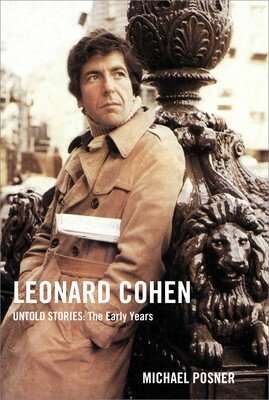
Leonard Cohen was a poet, novelist, singer-songwriter, artist, prophet, and icon like no other. He was a true cultural giant who entertained and inspired people all over the world with his work. Cohen is a beloved artist, from his groundbreaking and bestselling novels The Favourite Game and Beautiful Losers to timeless songs like “Suzanne,” “Dance Me to the End of Love,” and “Hallelujah.” The many fans and followers who would miss his warmth, humour, intellect, and piercing insights mourned his death in 2016.
Untold Stories by Leonard Cohen tells the story of his extraordinary life. The Early Years, the first of three volumes, follows him from his childhood in Montreal to university, and from his budding literary career to his first international tour in 1970.
The book delves deeply into both Cohen’s public and private life through the voices of those who knew him best—family and friends, colleagues and contemporaries, rivals, business partners, and his many lovers. It also depicts the social, cultural, and political revolutions that shook the 1960s as a whole.
In this revealing and entertaining first volume, bestselling author and biographer Michael Posner draws on hundreds of interviews to reveal the unique, complex, and compelling figure of the real Cohen, going beyond the Cohen of legend.
Source :
Read more >> Annie Wilkins Story: The Ride of Her Life
